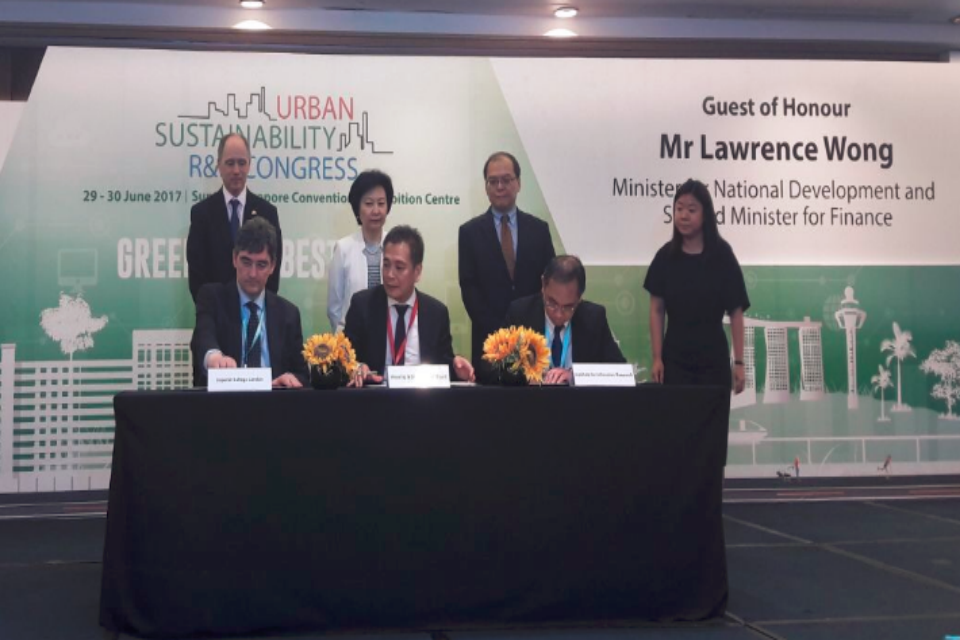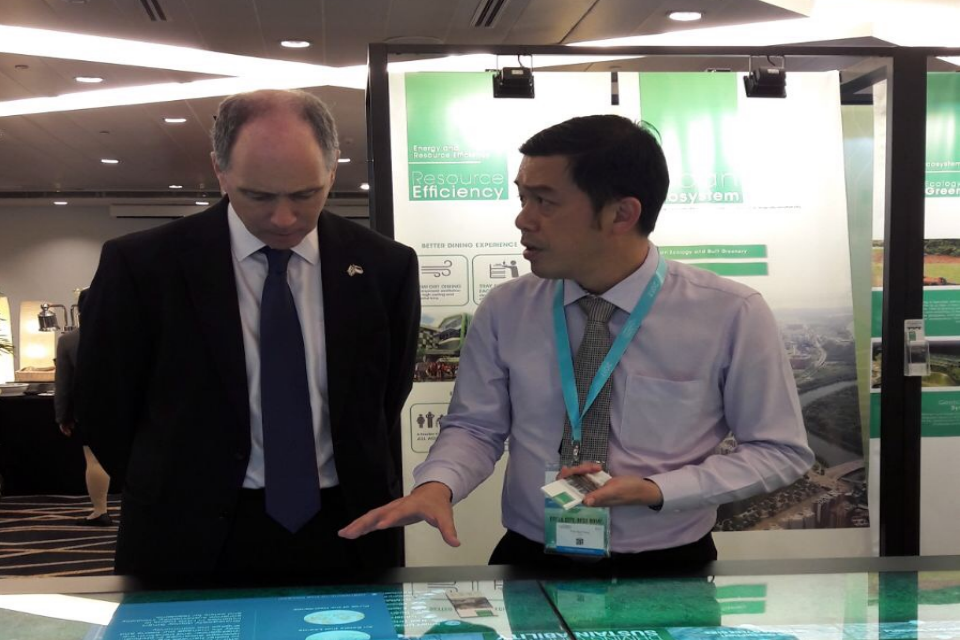SIN Singapore catalysed a £2.9 million research project
The project improves urban planning, design and maintenance, and will last for 4 years.
Documents
Details
With SIN’s help, Imperial College London and the Institute for Infocomm Research (I2R), Agency for Science, Technology and Research (A*STAR) signed an MOU on 29 June 2017. This will initiate a S$5.3 million (£2.9 million) research project in Oct 2017 that will last for 4 years.
The project has two aims. It will explore how data collection can be made more efficient and reliable. It will also deepen the use of data and predictive analytics to pre-empt potential issues related to the operations and maintenance of Housing Development Board (HDB) estates and buildings. This will enable a more proactive approach for the maintenance management of HDB estates and buildings.

With SIN’s help, Imperial College London and the Institute for Infocomm Research (I2R), Agency for Science, Technology and Research (A*STAR) signed an MOU on 29 June 2017.
Smart Nation
Advances in digital technology have opened up new possibilities to enhance the way we live, work, play, and interact. Singapore strives to become a Smart Nation to support better living, stronger communities, and create more opportunities, for all.
Sowing the Seeds for Future Collaborations
Singapore’s HDB participated in a UK-SG Future Cities workshop, jointly organised by SIN Singapore and the Singapore’s National Research Foundation (NRF), in 2014. Through the workshop, HDB learnt about the research capability of Imperial in the collection, analysis and interpretation of very large-scale, real-time datasets related to the operational, behavioural, attitudinal and environment aspects of estate and building planning, design and maintenance. This was a research area that was very relevant to HDB, especially with Singapore’s move towards building a Smart Nation. Since the initial meeting, HDB has worked with Imperial and I2R to develop a joint research proposal.

H.E Scott Wightman, British High Commissioner to Singapore, finding out more about how advances in digital technology have opened up new possibilities to enhance the way we live, work, play, and interact.
Delivering the Impact
The S$5.3 (£2.9) million research collaboration over four years arose from initial introductions made during SIN’s Future Cities workshop in 2014. The research project will explore how smart sensing and analytics can enhance services in housing estates, and will be led by Professor John Polak from Imperial’s Department of Civil and Environmental Engineering.
SIN Singapore Contact: hanbin.zheng@fco.gov.uk